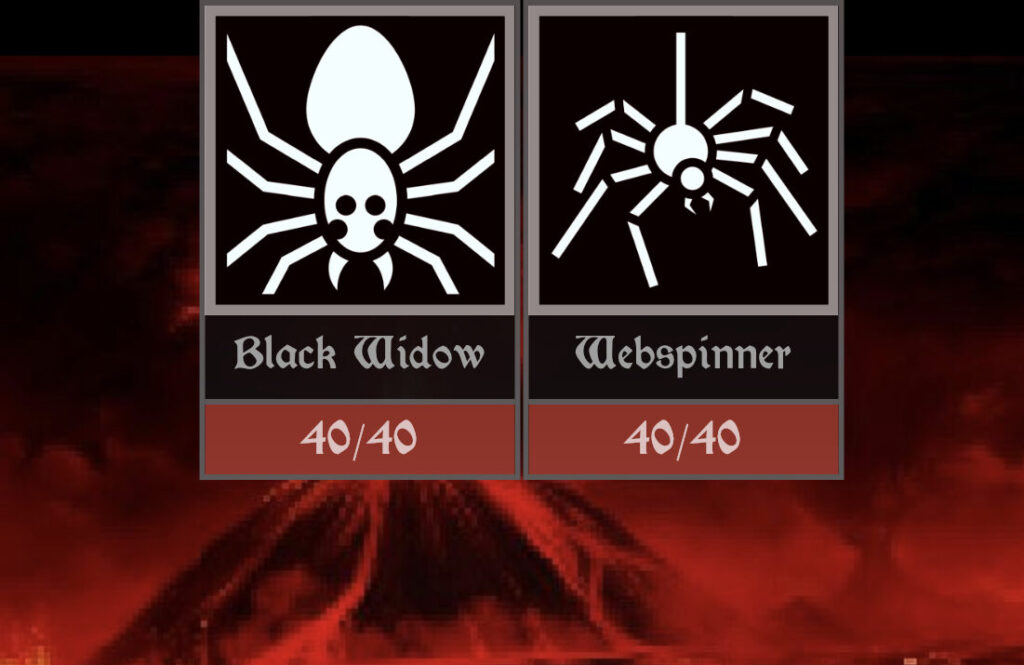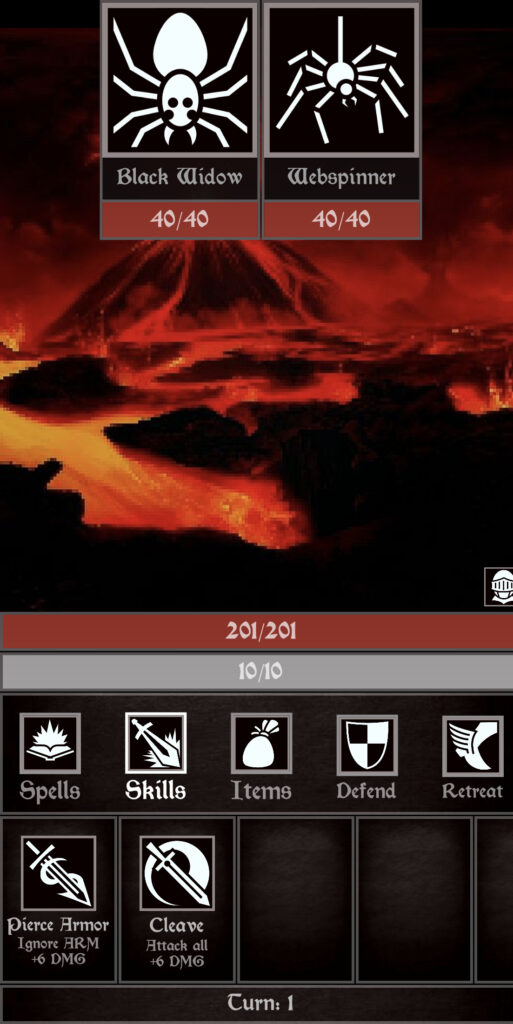 Grim Quest is, as it describes itself, an “Old School RPG”. But it’s nonetheless very original and extremely slick, as well as feature-rich. The interface is simple and reminiscent of a text-adventure, but dungeons are grid-based, each containing a range of random enemies and encounters.
Grim Quest is, as it describes itself, an “Old School RPG”. But it’s nonetheless very original and extremely slick, as well as feature-rich. The interface is simple and reminiscent of a text-adventure, but dungeons are grid-based, each containing a range of random enemies and encounters.
As well as managing health, you also need to pay attention to your “Sanity” bar. If this drops too low, everything starts going weird and you can’t always see monster HP. You also need to ensure you have enough provisions/food, but this eventually expands so you’ll have enough to comfortably complete every dungeon (each dungeon floor varies in size, up and down, irrespective of level). You can’t return to previous levels.
Grim Quest is a classic turn-based RPG / Dungeon Crawler with gothic aesthetics and a retro vibe. It is set in a dark fantasy world with elements of Lovecraftian horror and Freudian psychology, and puts a lot of emphasis on atmosphere and immersion with dark visuals, music and lots of written text. Reminiscent of pen and paper DnD.
 Combat is also interesting. You face up to three enemies at once, and where you tap on the screen corresponds to which you’ll hit. When you’ve unlocked a hit-all skill, you swipe across to activate it. When you’ve unlocked an extra-damage skill, you swipe up beneath that monster. It’s simple but adds more of a sense of action and interactivity.
Combat is also interesting. You face up to three enemies at once, and where you tap on the screen corresponds to which you’ll hit. When you’ve unlocked a hit-all skill, you swipe across to activate it. When you’ve unlocked an extra-damage skill, you swipe up beneath that monster. It’s simple but adds more of a sense of action and interactivity.
A lot of inventory management is needed: you can stash stuff in the Dancing Dragon pub and there’s a reasonable number of slots to do so. But your own backpack is very limited and you will need to save up to expand it.
There are unlimited sidequests based on a “Bounties” system and you can accept several at once. Some of the “kill x monster” ones can be problematic because as you advance through each dungeon area, some of the earlier monsters don’t seem to reappear. But you can abandon these quests. In terms of “find loot” quests (always a single item) these can be in your Stash or your Backpack, and you can accept a quest for something you already have and instantly complete it.
Another feature is attacks on the City of Ashborne. These are random and so far not difficult if you keep your troop numbers and morale up. Each of the three troop-kinds is effective against a particular kind of enemy. It’s pretty simple. I usually didn’t lose more than 50-100 of my 500 troops in each battle, and they’re quite cheap to replace and morale-boost.
There are also events in town: these are mainly irritating, eg the shop being closed, or buying at lower prices.
Links: